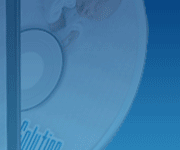
Recent research is suggesting that even infants can detect slight changes in a piece of classical music. Canadian researchers say babies can remember complex classical music, even after a two week delay. Their findings were detailed at a recent meeting of the Acoustical Society of America.
said Beatriz Ilari of McGill University in Montreal.
For her study, Ilari, a violinist, music teacher and doctoral candidate, chose the "Prelude" and "Forlane" from "Le Tombeau de Couperin" by Maurice Ravel.
"First, because it's unusual," said Ilari. "It is a beautiful piece of music, also a piece that, for people who are trained in classical music, we know it's considered very complex," she said.
Researchers gave a Ravel CD to parents, either the "Prelude" or "Forlane." Parents were told to play that piece to their seven- to eight-month-old infants three times a day, for 10 days. The CDs were then collected. After two weeks of not hearing that music, babies were tested at a McGill laboratory.
For her study, Ilari, a violinist, music teacher and doctoral candidate, chose the "Prelude" and "Forlane" from "Le Tombeau de Couperin" by Maurice Ravel.
"First, because it's unusual," said Ilari. "It is a beautiful piece of music, also a piece that, for people who are trained in classical music, we know it's considered very complex," she said.
Researchers gave a Ravel CD to parents, either the "Prelude" or "Forlane." Parents were told to play that piece to their seven- to eight-month-old infants three times a day, for 10 days. The CDs were then collected. After two weeks of not hearing that music, babies were tested at a McGill laboratory.
The test consisted of listening to 20-second excerpts of music, eight from the familiar piece mixed with eight from the unfamiliar one. During testing, the baby was seated comfortably on a parent's lap in a three-wall pegboard booth.
A red light was mounted on each side of the booth, to the left and right of the baby. One light would blink to attract the baby's attention. Once the baby looked at the light, a musical excerpt would come on through a loudspeaker hidden behind the light.
A red light was mounted on each side of the booth, to the left and right of the baby. One light would blink to attract the baby's attention. Once the baby looked at the light, a musical excerpt would come on through a loudspeaker hidden behind the light.
The excerpt would keep playing until the baby turned its head away, in another direction. Listening times were recorded for each excerpt and added up for each piece.
The researchers found that babies listened 20-30 percent longer to the music piece they had heard at home, compared to an unfamiliar piece.
The researchers found that babies listened 20-30 percent longer to the music piece they had heard at home, compared to an unfamiliar piece.
"We had a lot of parents, many unfamiliar with classical music, say that they really liked Ravel," said Ilari. "They asked to keep it after the study, because it was helpful in putting their baby to sleep, or calming the baby at feeding time," she said.
Some parents who introduced music to their kids at very early ages say there are a wide range of benefits. Victor and Adele Ronchetti's ten year old son Victor picked up a violin at age four and hasn't put it down. He's now in a young artists program at the Juilliard School in New York.
"Listening to music is great," said Adele Ronchetti. "I think playing an instrument is terrific. It keeps you away from the television set. You never hear about anybody who plays the violin building a bomb in their basement. I mean, I think it keeps you on the right track socially, it builds your self esteem. I think it's good for so many things," she said.
Some parents who introduced music to their kids at very early ages say there are a wide range of benefits. Victor and Adele Ronchetti's ten year old son Victor picked up a violin at age four and hasn't put it down. He's now in a young artists program at the Juilliard School in New York.
"Listening to music is great," said Adele Ronchetti. "I think playing an instrument is terrific. It keeps you away from the television set. You never hear about anybody who plays the violin building a bomb in their basement. I mean, I think it keeps you on the right track socially, it builds your self esteem. I think it's good for so many things," she said.





